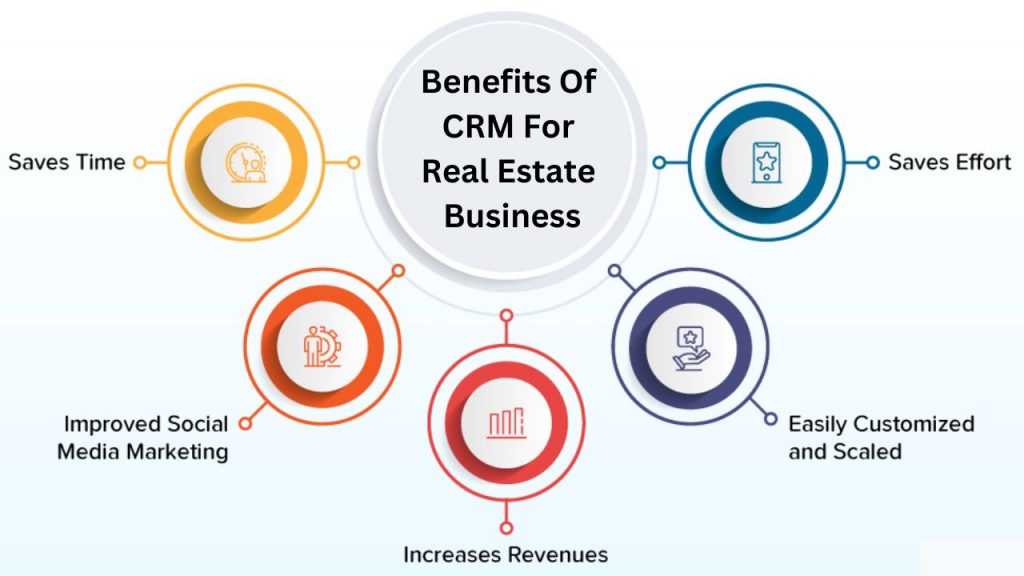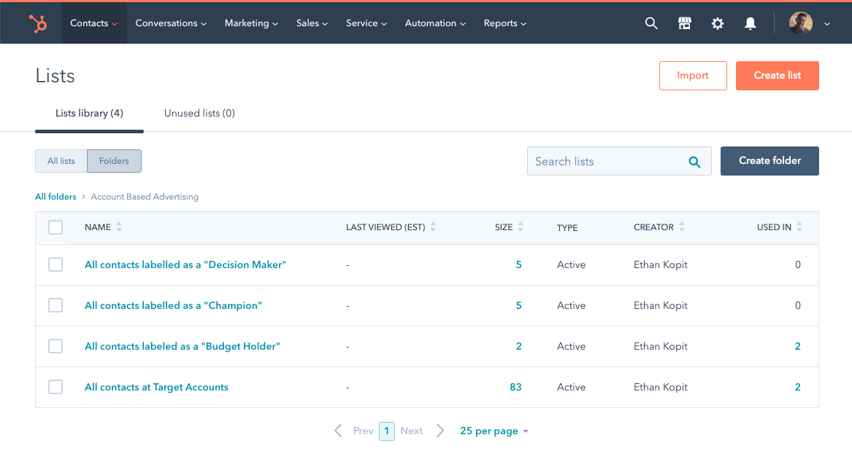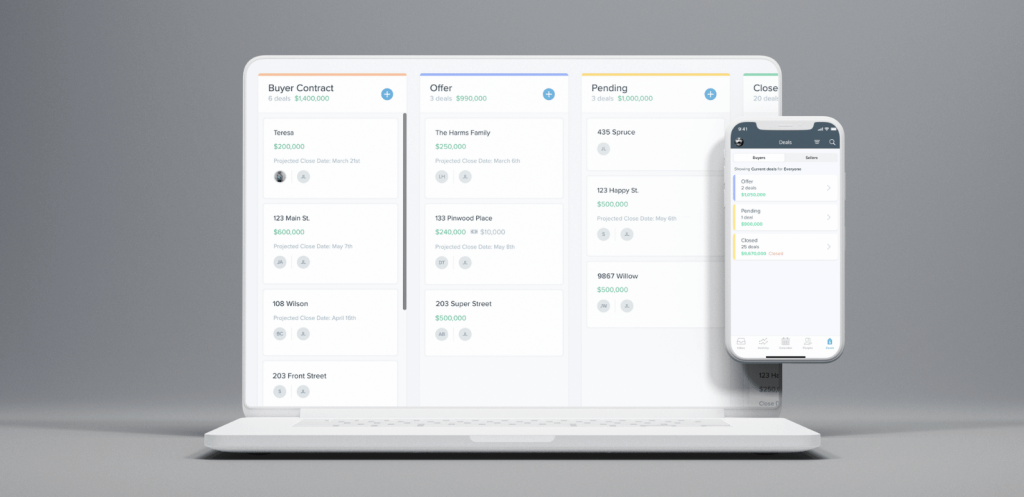Managing real estate can be complex. A CRM for real estate simplifies this task.
Real estate professionals need to handle many details. Tracking leads, managing client relationships, and organizing property listings can be overwhelming. A CRM, or Customer Relationship Management system, helps streamline these processes. It keeps all your data in one place, making it easy to access and use.
With a CRM, you can track interactions, automate tasks, and improve customer service. This tool can save time and boost efficiency. Whether you are a seasoned agent or new to real estate, a CRM is essential. Learn how a CRM can transform your real estate business and make your daily operations smoother.

Credit: orgzit.com
Introduction To Crm In Real Estate
Customer Relationship Management (CRM) systems are essential for real estate professionals. These tools help manage interactions with clients and streamline business processes. CRM systems store client data, track interactions, and automate tasks. This helps agents stay organized and efficient.
Importance Of Crm
CRM systems are vital for real estate businesses. They provide a central location for client information. This makes it easy to access and update details. Agents can track client preferences, communication history, and transaction progress. This improves client relationships and boosts satisfaction.
Real estate agents handle many tasks daily. A CRM system helps manage these tasks efficiently. It automates reminders, schedules appointments, and tracks follow-ups. This ensures agents never miss important dates or opportunities. By using a CRM, agents can focus on building relationships and closing deals.
Evolution Of Crm Systems
Over the years, CRM systems have evolved significantly. Early CRM tools were simple databases. They stored basic client information, like contact details. As technology advanced, these tools became more sophisticated. Modern CRM systems offer advanced features like automation, analytics, and integration with other tools.
Today’s CRM systems are cloud-based, making them accessible from anywhere. They offer mobile apps, which allow agents to manage tasks on the go. Integration with email, social media, and other platforms is common. This provides a seamless experience and keeps all client data in one place. Real estate professionals can now enjoy CRM systems that are more powerful, flexible, and user-friendly.
Key Features Of Real Estate Crm
A Real Estate CRM offers several key features that help streamline your business. These features help manage leads, contacts, and other crucial information. Let’s explore some essential features of a Real Estate CRM.
Lead Management
Lead management is vital for real estate professionals. It helps you track and nurture potential clients. A good CRM allows you to:
- Capture leads from various sources
- Automatically assign leads to agents
- Track lead interactions and history
- Set reminders for follow-ups
- Measure lead conversion rates
By organizing leads efficiently, you can focus on closing deals and growing your business.
Contact Management
Contact management helps you keep track of all your clients and their details. A robust CRM system offers:
- Centralized contact database
- Detailed client profiles
- Communication history tracking
- Segmentation and tagging
- Easy access to client information
With effective contact management, you can build stronger relationships with your clients. This leads to better client satisfaction and more referrals.
Benefits Of Crm For Real Estate Agents
Using a Customer Relationship Management (CRM) system can greatly benefit real estate agents. It improves client relationships, streamlines workflows, and helps manage leads effectively. Let’s explore how CRM can make your job easier and more efficient.
Improved Client Relationships
A CRM system helps you keep track of all client interactions. This means you can remember important details about each client. For example, you can note their preferences, budget, and desired locations.
With this information, you can offer personalized services. Clients will feel valued and understood. This builds trust and can lead to repeat business and referrals.
| Client Name | Preferences | Budget | Desired Location |
|---|---|---|---|
| John Doe | 3-bedroom house | $300,000 | Suburbs |
| Jane Smith | 2-bedroom apartment | $250,000 | City Center |
Streamlined Workflow
CRM systems automate many tasks. This saves you time and reduces errors. For example, you can automate follow-up emails and appointment scheduling. No need to remember every small task.
You can also manage your listings and leads from one place. This makes it easy to see what needs your attention. No more juggling multiple systems or spreadsheets.
- Automate follow-up emails
- Schedule appointments
- Manage listings and leads
With a streamlined workflow, you can focus on what you do best. Selling properties and making clients happy.
Choosing The Right Crm
Choosing the right CRM for your real estate business is crucial. It helps manage relationships, track leads, and close deals efficiently. But with so many options available, how do you pick the best one? Let’s explore the key factors to consider and some popular CRM solutions for real estate professionals.
Factors To Consider
When selecting a CRM, several important factors come into play:
- Ease of Use: The CRM should have an intuitive interface. Your team should not struggle to use it.
- Customization: The CRM must offer customization to match your business needs.
- Integration: Ensure it integrates with other tools you use, like email marketing software.
- Cost: Compare the pricing plans and see if they fit your budget.
- Customer Support: Good customer support is essential. You need quick help when issues arise.
- Mobile Access: A mobile-friendly CRM allows you to work on the go.
Popular Crm Solutions
Here are some popular CRM solutions for real estate professionals:
| CRM Solution | Key Features | Price Range |
|---|---|---|
| Zoho CRM | Lead management, email marketing, mobile access | Starting at $12/user/month |
| HubSpot CRM | Email templates, deal tracking, integrations | Free, with premium features starting at $50/month |
| Real Geeks | Lead generation, IDX website integration, CRM automation | Starting at $249/month |
| Follow Up Boss | Lead distribution, automated follow-ups, reporting tools | Starting at $69/user/month |
Choosing the right CRM can help you stay organized and grow your business. Consider these factors and explore these popular solutions to find the best fit for your needs.
Implementing Crm In Real Estate
Implementing CRM in Real Estate can greatly enhance your business operations. CRM, or Customer Relationship Management, helps real estate professionals manage interactions with clients and prospects. This leads to improved efficiency and better client satisfaction. Let’s delve into the steps involved in implementing a CRM system in your real estate business.
Initial Setup
The first step in implementing CRM in real estate is the initial setup. Choose a CRM system tailored to the needs of your real estate business. Look for features like lead management, client tracking, and property management.
Once you select a CRM, begin by inputting your existing client data. This includes contact details, property interests, and interaction history. Organize this data into categories for easy access.
A typical setup process might involve:
- Creating user accounts for team members
- Setting up custom fields for property details
- Integrating with your existing email system
- Configuring notifications and reminders
Ensure your CRM system integrates with your current tools. This might include email marketing software or calendar apps. Integration helps streamline your workflow.
Training The Team
Next, focus on training the team. Everyone should understand how to use the new CRM system. Start with basic functions like adding new leads and updating client information.
Organize training sessions for your team. Use a mix of in-person training, video tutorials, and written guides. Make sure to cover:
- Navigating the CRM interface
- Entering and managing client data
- Generating reports on sales and client interactions
- Using CRM features for marketing campaigns
Encourage team members to ask questions during training. Provide ongoing support as they get used to the new system.
Regularly review CRM usage with your team. Address any issues and suggest improvements. This ensures everyone uses the CRM to its fullest potential.
With proper setup and training, a CRM system can transform your real estate business. It helps manage client relationships, track interactions, and streamline operations. Start your CRM journey today and see the difference it can make.

Credit: www.hubspot.com
Overcoming Common Challenges
Implementing a CRM for real estate can be challenging. Businesses often face obstacles during the process. These challenges can hinder the success of CRM adoption. Let’s discuss some common problems and how to overcome them.
Data Migration
Data migration is a critical step. It involves moving data from old systems to the new CRM. This process can be complex. Errors during migration can lead to data loss or corruption. To avoid this, plan carefully. Start by cleaning your data. Remove duplicates and outdated information. Use reliable tools for data transfer. Test the migration process before finalizing it. Ensure that all data has been accurately transferred.
User Adoption
User adoption is vital for CRM success. Employees must use the new system effectively. Resistance to change can be a major barrier. To overcome this, provide adequate training. Ensure users understand the benefits of the CRM. Offer continuous support during the transition. Make the system user-friendly. Gather feedback from users and make necessary adjustments. This will help in smooth adoption.
Integrating Crm With Other Tools
Integrating CRM with other tools can greatly enhance the efficiency of a real estate business. By linking CRM with other essential software, you can streamline operations, improve customer interactions, and gain valuable insights. Below are some key tools that can be integrated with a CRM system to boost your real estate business.
Marketing Automation
Integrating a CRM with marketing automation tools helps in managing campaigns seamlessly. Automate email campaigns, track customer engagement, and analyze results. This integration allows you to segment your audience based on their behavior and preferences.
- Automated Email Campaigns
- Customer Segmentation
- Lead Scoring
- Performance Tracking
With automated workflows, you can nurture leads without manual effort. Customize your messages and send them at the right time. This ensures higher engagement and conversion rates.
Property Management Software
Linking your CRM with property management software can simplify property listings and tenant management. This integration keeps all property-related information in one place. It helps in managing leases, tracking maintenance requests, and collecting rent payments.
| Feature | Benefit |
|---|---|
| Lease Management | Track lease terms and renewals |
| Maintenance Tracking | Monitor and respond to maintenance requests |
| Rent Collection | Automate rent payments and reminders |
By having all this data integrated into your CRM, you gain a complete view of your properties and tenants. This enables better decision-making and improves operational efficiency.
Future Trends In Real Estate Crm
The real estate industry is rapidly evolving. Technology is playing a key role in this transformation. Real Estate CRM systems are becoming more advanced. They help agents manage leads, clients, and properties better. Staying updated with future trends is essential for success.
Ai And Machine Learning
Artificial Intelligence (AI) and Machine Learning (ML) are reshaping Real Estate CRM. These technologies automate routine tasks. They analyze data to provide insights. Agents can understand client preferences better.
AI-powered chatbots assist with customer queries. This ensures clients receive instant responses. ML algorithms predict market trends. They help agents make informed decisions. These tools save time and improve efficiency.
Here is a table showing the benefits of AI and ML in Real Estate CRM:
| Feature | Benefit |
|---|---|
| AI Chatbots | 24/7 Customer Support |
| Data Analysis | Better Client Understanding |
| Market Predictions | Informed Decision Making |
Mobile Crm Solutions
Mobile CRM solutions are becoming more popular. Real estate agents often work on the go. They need access to CRM tools anytime, anywhere.
Mobile apps offer this flexibility. Agents can manage leads from their smartphones. They can update client information on the spot. This increases productivity and responsiveness.
Let’s look at some key features of mobile CRM solutions:
- Access to CRM data anytime
- Real-time updates
- Lead management on the go
Mobile CRM solutions make it easy to stay connected. They ensure agents never miss an opportunity.

Credit: www.realestatewebmasters.com
Frequently Asked Questions
What Is A Crm For Real Estate?
A CRM for real estate is a tool that helps manage client relationships. It streamlines communication, tracks leads, and organizes customer data.
Why Use A Crm In Real Estate?
Using a CRM in real estate improves efficiency. It helps manage leads, automate tasks, and enhance client relationships, leading to increased sales.
How Does A Real Estate Crm Work?
A real estate CRM works by centralizing client information. It tracks interactions, manages leads, automates follow-ups, and provides insights for better decision-making.
What Features Should A Real Estate Crm Have?
A real estate CRM should have lead management, automated follow-ups, client tracking, email marketing, and reporting features. These features ensure efficient operations.
Conclusion
CRM for real estate makes managing clients easier. It helps streamline communication. Agents can track leads efficiently. This leads to better customer relationships. Overall, CRM tools save time. They also boost productivity. Agents can focus on selling. A good CRM supports business growth.
It’s essential for modern real estate. Investing in CRM technology benefits both agents and clients. Don’t overlook its importance. Consider adopting a CRM today.




